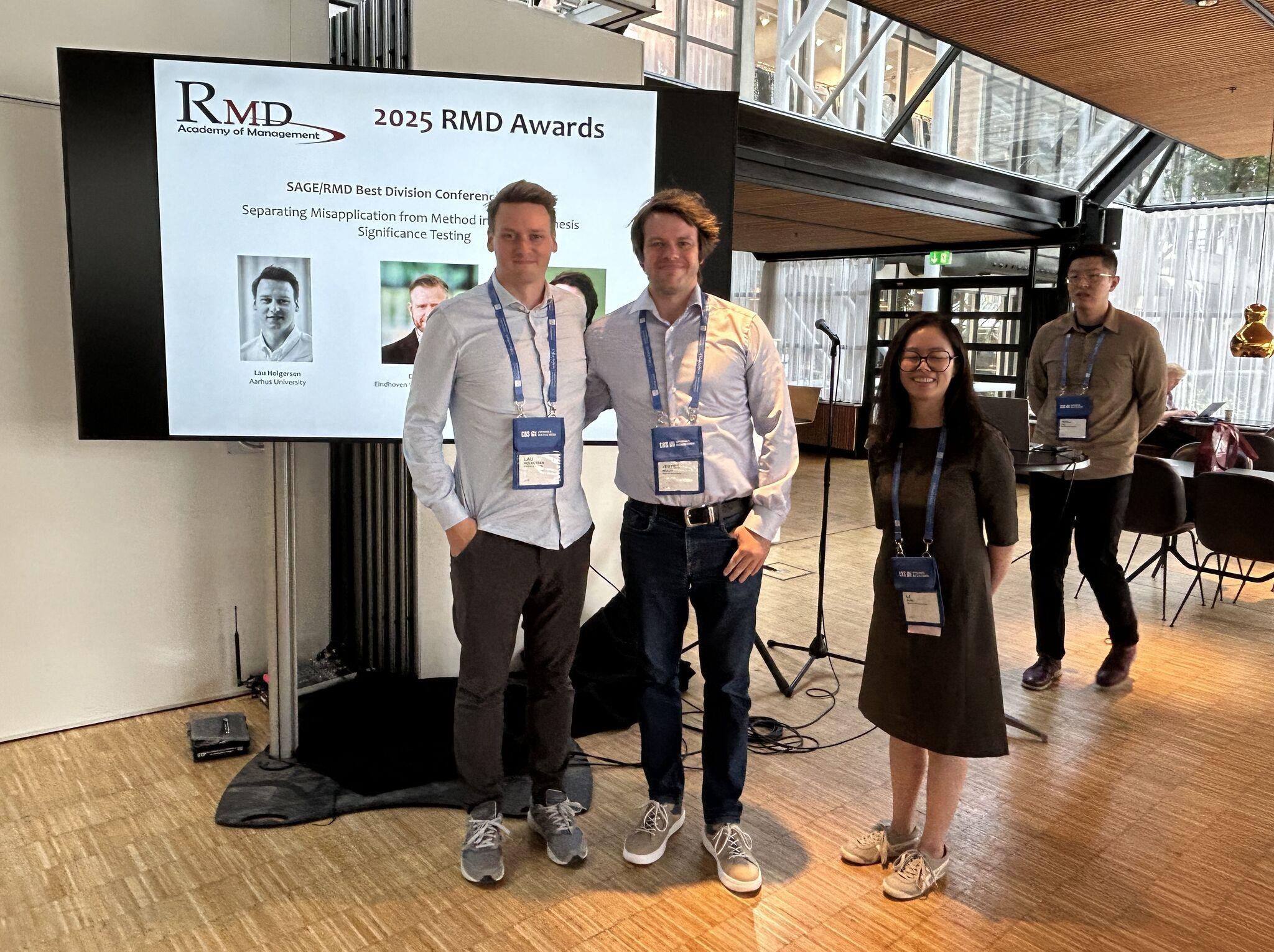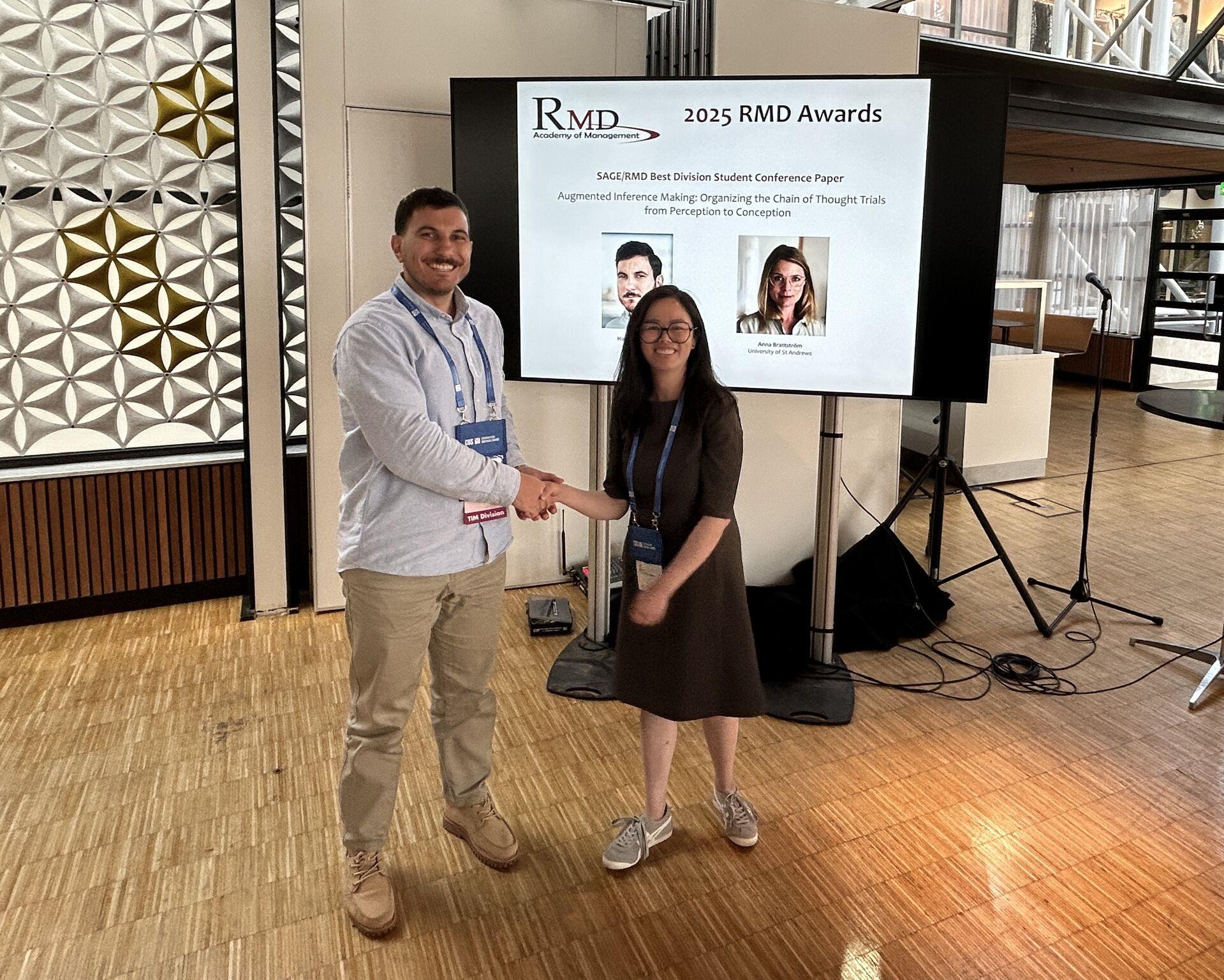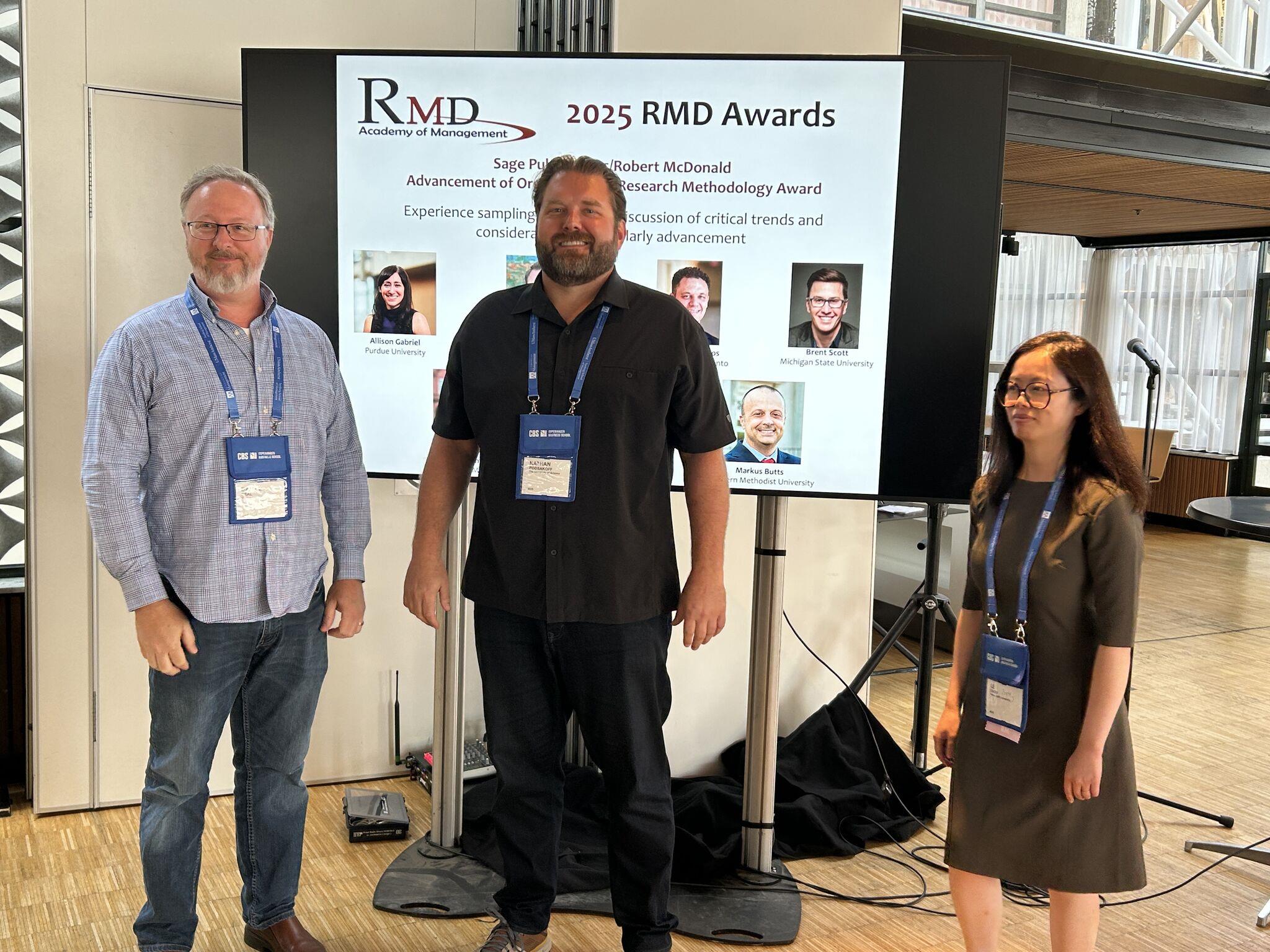
Career Award Winner: Paul Bliese

Best Division Paper: Lau Holgersen, Daniël Lakens, & Jesper Wulff

ORM Best Paper Award (Qualitative): Kevin Rockmann & Heather Vough

Best Student Paper: Hassan Md Hamadi & Anna Brattström

McDonald Award: Allison Gabriel, Nathan Podsakoff, John Trougakos, Brent Scott, Sabine Sonnentag, Daniel Beal, & Marcus Butts